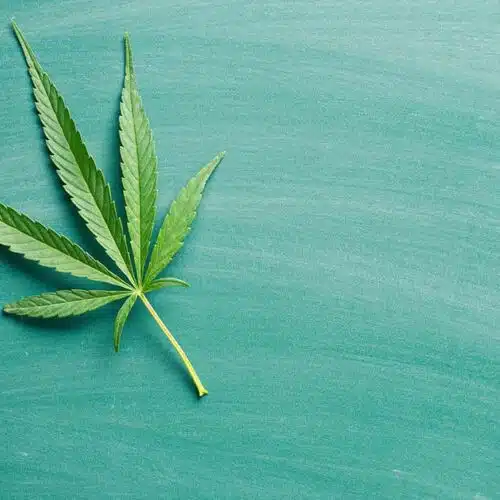Though programs discourage “mood-altering substances” for recovering addicts, cannabis extracts might be far safer than the opioid alternatives
Rolling Stone: Why the Addiction Recovery Community Should Accept Medical Marijuana- The first time someone told me it’s possible to consume cannabis without getting high, I scoffed. I was five years sober and my friend, newly in recovery, was telling me about a “special” kind of marijuana. Apparently, she said, it offered anti-anxiety and pain relieving effects without the high of “traditional” marijuana. I didn’t pay much attention. First, I didn’t have strong feelings about marijuana one way or the other – my drug of choice was always alcohol. Second, weed with medicinal benefits and no psychoactive effect seemed like the wishful thinking of a newly sober recovering addict. I wrote it off as a pipe dream of the uncomfortably abstinent.
In new Federal Register notice, Administration clarifies that all forms of cannabis remain illegal under federal law
For anyone who has spent a significant amount of time in a 12-step meeting, any discussion of cannabis brings to mind a familiar scene: a newcomer to the group asks if they can continue to smoke pot, as long as they quit drinking (or using other drugs). The question is commonplace, the response almost Pavlovian: a good-natured chuckle, followed by a firm, unequivocal no.
Most recovery programs encourage sobriety, which is generally defined as abstinence from the recreational use of “mood-altering” substances. If you’re among the 49 percent of Americans who have used marijuana recreationally, you can attest to the mind-altering effects of the drug. Getting high – much like President Obama said of inhaling – is the point. From a 12-step perspective, using marijuana recreationally is no different than using alcohol or other drugs. It takes the user out of the present, offers them the same escape from reality to which they became addicted. This is the reason for the unambiguous no. While nothing is universally true for all addicts, stories of people who quit one substance only to replace it with another are as common in 12-step meetings as tepid coffee. So we stay away from “mood-altering substances” – all of them.
The lines become blurrier when the conversation veers from recreational to medicinal drugs. Narcotic medications, even when prescribed properly, have addictive properties, so recovering addicts tread carefully before taking them. This, too, is understandable: shouldn’t a recovering heroin addict be wary of taking a painkiller with the same active ingredient as heroin? Of course, this puts recovering addicts who experience chronic pain, anxiety, or have other conditions that might be treated with potentially addictive medication in an impossible situation: live with chronic pain and/or anxiety or risk becoming addicted again.
Ideally, these decisions should be made on an individual basis, between doctor and patient. But the attitudes of a recovery support group inevitably have some influence on a recovering addict’s decisions. This is why it’s crucial that the addiction recovery community understand the realities of medical cannabis and the potential benefits for people who are sober, or trying to get sober.
Over the past decade, changing attitudes and better information about cannabis has led to legalization in a growing number of states, first for medical and now recreational purposes. Scientific data about the benefits of medical marijuana is compelling and increasingly accepted: A 2016 Quinnipiac poll determined that 89 percent of Americans support the use of medically prescribed marijuana, a number that has been consistently growing for two decades. Yet nine years of being in 12-step meetings and researching addiction has made it clear to me that many in the sober community are automatically dismissive of medical marijuana.
In an article for Substance.com, recovering heroin addict Tony O’Neill described his exchange with a Narcotics Anonymous member about using marijuana to wean himself off heroin. While tapering off opioids isn’t a recommended use for medical marijuana, the reaction from the NA member is indicative of many in the community: “‘Hell no!’ is the blunt answer I get when I ask a longstanding NA-er called Mark if he’d be OK with his sponsees [people he takes through the 12-steps] smoking a little weed,” he wrote. Many addiction specialists agree. “People are more likely to seek their primary drug or alcohol when they are intoxicated or high,” Anne Lewis, a clinical psychologist, and licensed addictions counselor, told U.S. News and World Report last November. “It lowers your inhibition, so you don’t care. We don’t make good decisions when we’re drunk or high.”
But what if medical marijuana wasn’t making the user high? As it turns out, sobriety and cannabis are not mutually exclusive.
marijuana concentrate
Medical marijuana has become increasingly accepted by the mainstream – but not the recovery community.
There are over 100 cannabinoids that can be extracted from cannabis: the two most notable are tetrahydrocannabinol (THC) and cannabidiol (CBD). THC is the primary psychoactive component. CBD, however, offers many medical benefits without any psychoactive effect. While some conditions warrant a THC/CBD combination (the pain relieving effects of cannabis significantly increase with THC/CBD strains), CBD alone has been proven to have anti-inflammatory, anti-anxiety, and anti-seizure effects. CBD oil has been especially useful in for children with seizure disorders, in many cases allowing them to get off benzodiazepines and other strong sedatives. These children are not stumbling around stoned; they are taking a drug that provides incredible relief from their symptoms with virtually no side effects.
High CBD cannabis strains offer non-psychoactive pain and anxiety relief without the use of significantly more addictive drugs. The body of evidence supporting CBD as an effective treatment for anxiety disorders is particularly strong. Currently benzodiazepines – a highly addictive class of drugs, with brand names like Xanax, Valium, and Klonopin – are among the most frequently prescribed drugs for anxiety. Not only do they pose potential dangers for recovering addicts –like becoming addicted and dangerous withdrawal symptoms – they’re also a significant component in many overdoses.
Of course, cannabis won’t be an option for every person in recovery with a health condition: many afflictions can’t be treated with just high CBD strains; some will require a THC/CBD combination, and would therefore have some psychoactive effects. But understanding that a person can use medical cannabis without experiencing a psychoactive effect is crucial information for people concerned with recovery.
Luckily, some healthcare professionals in the addiction recovery community are starting to see the possibilities of CBD medication. In June of 2015, Nora Volkow of the National Institute on Drug Abuse (NIDA) published a cautiously supportive op-ed about the potential benefits of CBD. Her report states, “CBD appears to be a safe drug with no addictive effects, and the preliminary data suggest that it may have therapeutic value for a number of medical conditions.” NIDA appears to be continuing it’s investigation into the benefits of medical marijuana: In March of 2016, it was one of the sponsors of the Marijuana and Cannabinoids: A Neuroscience Research Summit. While this by no means indicates NIDA’s categorical acceptance of medical marijuana, NIDA’s involvement in such an event would have been unthinkable 10 years ago. Yet knowledge among healthcare professionals and breaking down stigma are two very different things; the politicization of medical cannabis and decades of misinformation about the drug contribute to hardened and inaccurate stereotypes about how medical marijuana can be used.
A recovery support group should never give medical advice – but in any group, attitudes about these subjects will bleed into the general consciousness. These attitudes are shaped by our existing knowledge, and misinformation serves no one.
Perhaps it’s just hard for people in my tribe – people who love substances too much – to imagine that marijuana use isn’t necessarily about getting high. But the data is mounting and the recovery community has to get on board. Otherwise, we’re telling recovering addicts with pain or anxiety that they have two options: take highly addictive, often dangerous drugs or nothing at all. And that is an inaccurate and dangerous ultimatum.
By- Katie MacBride


